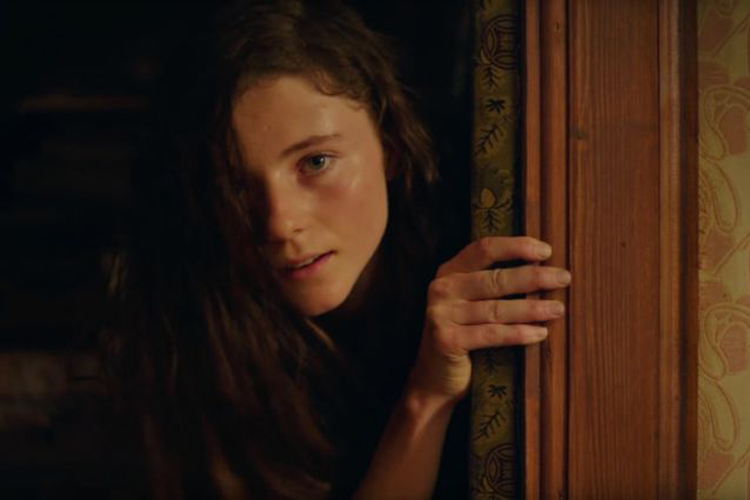I recently had the opportunity to talk with Thomasin McKenzie, a rising actress who starred in last year’s Leave No Trace and this year’s Jojo Rabbit, in addition to a handful of upcoming indie films. We sat down to discuss her role in Jojo Rabbit as Elsa, a young Jewish girl hiding in Nazi Germany. Our conversation has been edited for length.
—
Ryan Bordow: There’s been a bit of a Nazi comeback lately—how do you think this movie is going to land in a time when Nazis are all over the news again?
Thomasin McKenzie: I think this film is really a great reminder of the past, and a warning that we can’t let those atrocities be repeated. I think that’s just something that’s really important for people to be reminded of these days, especially for the younger generations, since this feels more accessible to them because of the comedy and because of how modern it feels. If we’re teaching the young people these things early on, and if they’re learning of this history, it’s less likely for them to have those kind of extremist views, and they’ll be more understanding that there’s so many different ways of life and so many different religions, cultures, whatever—no one can live in exactly the same way. And also, I think it’s good for those neo-Nazis to know that people are standing up against their hate, and also for just the general public to be reminded that you can’t be a bystander; you’ve got to spread goodness as well.
Question: Not only have you worked with Taika [Waititi], you’ve also worked with Edgar Wright and Peter Jackson. Can you tell us a little bit about those experiences? Who do you want to work with next?
Thomasin McKenzie: I had a bigger role in [Edgar Wright’s] Last Night in Soho, so I had a bigger workload. It was a very, very—as you’d expect of Edgar—a very technical project, and there was a lot going on, so I had fun. I did night shoots for the first time and we were filming in the middle of Soho, and I was having a really great time and experiencing so many different things. I worked with Peter Jackson when I was—I think I would’ve been eleven or twelve, and I had like the tiniest, tiniest role in The Hobbit. What was cool about that role is she was one of the only named female characters, one of the very few named female characters in The Hobbit. I think my character’s called Astrid. That was cool, and it was such a massive production, something that New Zealanders are very proud of—that whole Lord of the Rings and The Hobbit kind of world. So I was really excited to be a part of that.
Who I want to work with next… I love Ken Loach, I think he’s an amazing director. Also Jane Campion, I love Jane—she’s actually a family friend; I’ve wanted to work with her my entire life, I think. So yeah, just anyone who has a really cool vision, I guess, and also people who have the courage to take risks like Taika does.
Question: Taika has a reputation for being a ridiculous person on set. What was it like to work with him?
Thomasin McKenzie: So much fun! He is, you know—as you can tell in interviews and everything—he is so funny and really quick on his feet, and really witty, and that’s just how he was on set. Which is important for this film because although it’s a very real part of history, it is also a film that has so much hope and joy in it as well. Taika really, really created the atmosphere for that. But at the same time, every single take he would be sitting in the room, and if he could, his cheek would be right up against the camera. He was always really there and always very engaged, as you’d hope.
Question: One of the American films you were in was Leave No Trace with Ben Foster. Looking at that one and Jojo Rabbit, you’ve already done a lot of accent work. Is that something that’s easy to slip into and out of, or does that take a lot of work?
Thomasin McKenzie: No, it takes a lot of work. ‘Cause you’re really changing how your mouth moves. With the New Zealand accent, we don’t really move our mouths a lot; a lot of the time we’re quite mumbly. [Laughs] With American accents, it’s oftentimes a lot more expressive, I think, so you’re really changing how you use your mouth. And then also you feel kind of vulnerable when you’re speaking in a new accent, because it feels a bit embarrassing at first, and you feel a lot more self-conscious about how you sound. You think other people are—I don’t know, judging you, I guess. What I like to do when I’m learning a new accent, which is something I did on Leave No Trace and something I did on Last Night in Soho, was I used my accent all day, every day. I’d only use my New Zealand accent for when I got home, for like half an hour late at night; I’d say hi to my mum, my dad, and my little sister, and then I’d go to bed. And then the next day, it would be my new accent all day. That really helped me to really get a feeling for the accent. By the end of it, I felt really weird going back to my New Zealand accent, because I was so used to the other one. I’m not sure if I can say what accent it was to be honest; I’m trying to avoid saying that. It was very different from what I’m used to.
Question: Okay, uh… does pineapple belong on pizza?
Thomasin McKenzie: Yes. [Laughs] I love pineapple! Taika actually wore, for a lot of the time—when he wasn’t in his ugly Hitler uniform—he wore an amazing pineapple jumpsuit.
Question: [Laughs] Why does he have a pineapple jumpsuit?
Thomasin McKenzie: ‘Cause he’s a very stylish man!




